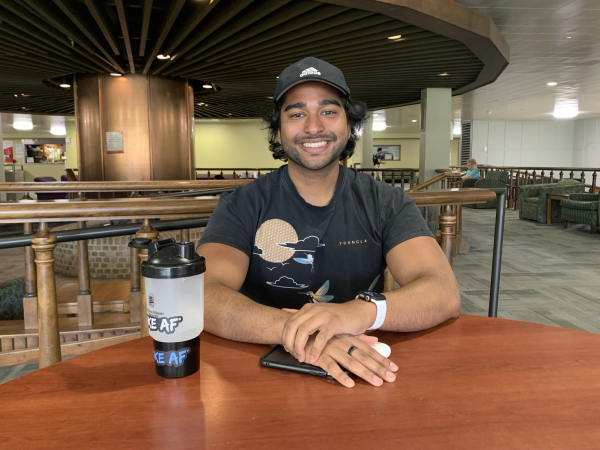Supreme Court hears union fees case
March 5, 2018
Oral arguments presented to the Supreme Court Feb. 26 could overturn a precedent requiring employees represented by unions pay union fees.
The case brought to the high court is Janus v. American Federation of State, County and Municipal Employees Council 31.
Mark Janus, a public employee of Illinois through the Illinois Department of Healthcare and Family Services, is challenging a precedent set in 1977 by the ruling of Abood v. Detroit Board of Education, according to IllinoisPolicy.org. State employees represented by a union must pay the union a service charge, even if the members are not in the union, according to the 1977 ruling.
Janus is challenging the American Federation of State, County and Municipal Employees Council 31, or AFSCME, the union he pays fees to. AFSCME Council 31 represents just over 600 operational staff members and 1,000 staff members overall at NIU.
AFSCME Council 31 has been negotiating with NIU officials since 2016 for a new bargaining agreement, according to an Oct. 23 Northern Star article. AFSCME has tried to guarantee faculty members a 3 percent raise proposed by acting President Lisa Freeman at a Sept. 20 State of the University Address. The increase was adapted by the NIU Board of Trustees Oct. 19.
AFSCME Council 31 protested in front of Altgeld Hall Nov. 20, saying the university has not made an effort to settle negotiations fairly and timely.
If Janus wins and overturns the precedent, government workers like teachers, police officers, firefighters and others, would not be forced to pay union fees.
Janus appeared on Fox News Feb. 27 and said he felt like he never got to have a say in whether he is represented or not.
“That’s the crux of the whole argument here, it’s that I don’t have that freedom,” Janus said in an interview with Fox News’ Shannon Bream Feb. 27. “My right to say ‘yes’ is as important as my right to say ‘no,’ and I never got that opportunity.”
The case originally was brought on by Illinois Gov. Bruce Rauner who tried to file a suit against AFSCME Council 31 to get rid of fair share fees in state government.
Sara Dorner, labor representative for AFSCME Council 31, said Rauner’s attack on AFSCME is being viewed by the group as an attack on the working class.
“This is very clear to us, and frankly to working class people everywhere, that this is an attack on workers and the working class by the wealthy elite,” Dorner said.
The Illinois Education Association and its members have come out in support of AFSCME, saying the lawsuit could damage teachers’ ability to negotiate.
“The Janus case could affect our ability to fight for our students with our voices, our ability to negotiate fair contracts for teachers, support staff, our ability to take a look at what’s best for students, whether it’s classroom environments or curriculum decisions,” said Unique Morris, IEA member and teacher at Washington Elementary School in Riverdale, Illinois, according to a Feb. 26 IEA press release.
Neill Mohammad, a Democratic primary candidate in the Illinois 16th Congressional, commented on the cases’ impact. Mohammad said he is a longtime member of the American Federation of Teachers and supports solidarity among workers, according to a Feb. 27 press release from his campaign.
“The Janus v. AFSCME case may have started in Illinois, but if the Supreme Court destroys public sector unions, hardworking Americans across the nation will suffer,” Mohammad said in his press release.
Dorner said AFSCME Council 31 is confident in their case that is being presented to the Supreme Court because of how previous measures, as in the Abood v. Detroit Board of Education ruling, have stood to this point.
“We’re confident in our case, and we hope the Supreme Court agrees with us,” Dorner said.
Correction: It was originally reported that Neill Mohammad was a longtime member of AFSCME Countil 31, which was incorrect. Mohammad is a longtime member of the American Federation of Teachers. The correction has been made to the article.













